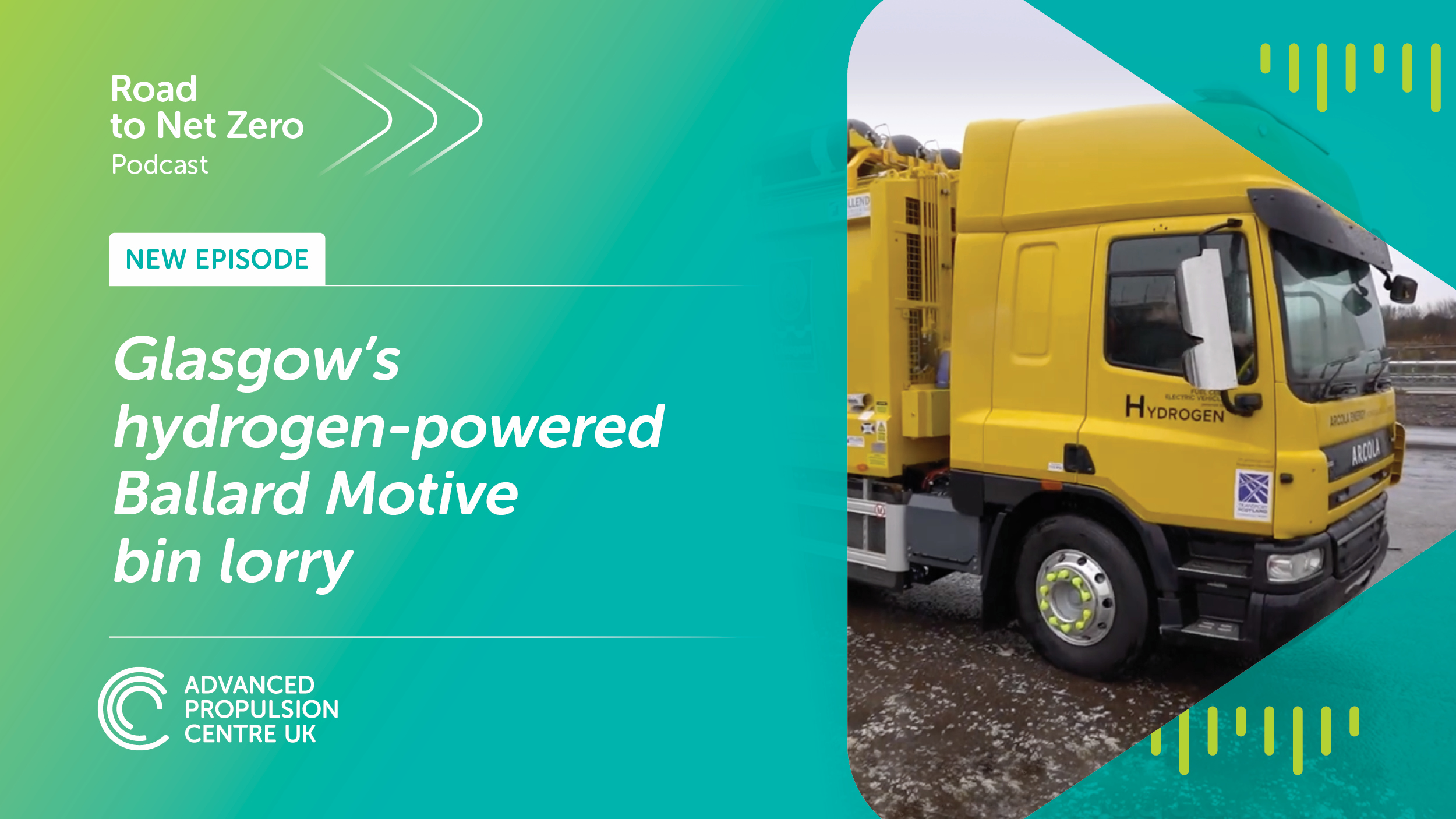Glasgow’s hydrogen-powered Ballard bin lorry
In a £7 million deal, Glasgow City Council have ordered a fleet of 20 hydrogen fuel cell refuse collection vehicles (RCVs) from Ballard Motive Solutions. This will mean that they will have the world’s largest hydrogen fuel cell RCV fleet. The council will also be procuring green hydrogen refuelling solutions.
Ballard Motive Solutions (previously known as Arcola Energy before its acquisition) began developing its hydrogen fuel cell RCV after undertaking a research project that was part-funded by the Advanced Propulsion Centre’s Automotive Transformation Fund.
The objective of the research was to find the best business cases for the heavy-duty hydrogen fuel cell power trains that Ballard Motive Solutions were developing. The study found that refuse collection was one of the best immediate business cases for hydrogen fuel cell vehicles, as they use a lot of energy, work long shifts and return to a single depot where they can be quickly and conveniently refuelled.
Talking about the benefits of the research Dr Richard Kemp-Harper, Strategy Director at Ballard Motive Solutions, said:
“We now have a much clearer direction as a business. We’ve got customers lined up. There’s a number of people who would like one of these RCVs and other vehicles that align with the capabilities of the technology. We’re looking at this site here in Dundee to be employing 150 people in the next couple of years for production, assembly, further integration and engineering of these vehicles for customers.”
One of the biggest challenges around the adoption of hydrogen vehicles is that they can be more expensive to trial than battery electric, as a hydrogen refuelling solution is required. However, the next step of moving from trial to a full fleet roll out of hydrogen is much easier to scale up, because once a refuelling system is in place, it is simpler to get a greater volume of hydrogen delivered.
“You can do one or two vehicles really easily with battery electric,” says Kemp-Harper. “But once you get up to 50 or 100, it’s a lot of energy. Suddenly you’re looking at infrastructure upgrades.”
For hydrogen, the minimum number is 20 vehicles to justify a refueler. Once that infrastructure is in place, not only can you quickly and easily increase your hydrogen-powered fleet, but it can then also be used to fuel other heavy-duty fleets such as long-distance HGVs, construction and farm machinery.”
The next step for Ballard Motive Solutions is the adoption of more small fleets of hydrogen fuel cell vehicles that justify the expense of further hydrogen refuelling infrastructure. Once that infrastructure is in place, the cost of trialling and adopting hydrogen will come down.

Road to Net Zero Podcast
Our Road to Net Zero podcast is all about how the UK automotive industry is transitioning to net zero. In a series of interviews, we highlight key issues and developments, interesting projects and technologies emerging from one of the UK’s most innovative sectors on the road to net zero.